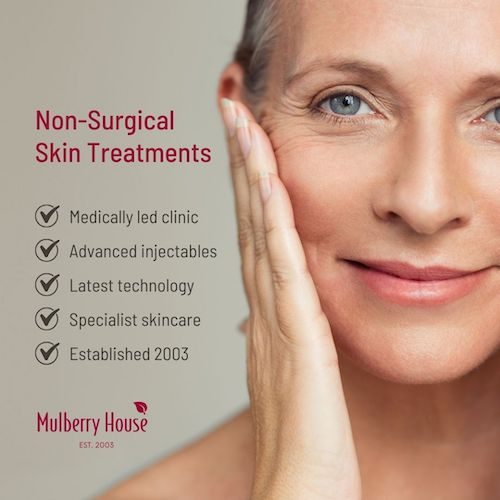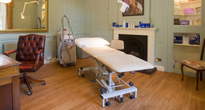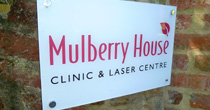
It is a state of mental or emotional strain resulting from challenging circumstances. It triggers a biological response in the body, often referred to as the “fight or flight” reaction.
Stress is a natural response which can cause short term symptoms such as sweating, shaking, rapid breathing, higher heart rate and spikes in blood glucose to name but a few. Unsurprisingly, prolonged or repeated stress can be damaging to the body and to health. Longer term symptoms of stress include headaches, anxiety, memory issues, mood swings, loss of appetite/poor eating habits and sleep difficulties.
Perhaps therefore it is somewhat unsurprising that stress can also significantly impact our skin’s appearance and contribute to premature aging.
How Stress Affects the Skin
Stress has several pathways through which it can affect skin health, leading to signs of premature aging:
- Increased Cortisol Levels:
- Stress raises cortisol production, which can break down collagen and elastin – proteins essential for maintaining skin structure and firmness.
- Inflammation:
- Chronic stress may lead to inflammation, exacerbating conditions like acne or eczema and contributing to uneven skin tone.
- Oxidative Stress:
- Elevated stress levels can increase the production of free radicals, leading to oxidative damage and accelerating aging processes.
Signs of Stress-Induced Skin Aging
- Lines and Wrinkles:
- Repeated facial expressions resulting from stress (like frowning) can cause fine lines and wrinkles, especially around the eyes and mouth.
- Sagging Skin:
- Reduced collagen and elastin production due to prolonged stress can lead to skin sagging and loss of firmness.
- Loss of Elasticity & Dryness:
- Stress can reduce the skin’s ability to retain moisture, leading to dryness, flakiness, and an overall dull appearance.
- Pigmentation Issues (e.g., Melasma):
- Stress may trigger hyperpigmentation due to hormonal changes or inflammation, leading to dark patches on the skin.
Non-Surgical Skin Treatments for Stress-Induced Premature Aging
- Skincare Regime:
- Hydration: Use moisturisers that contain hyaluronic acid and ceramides to promote skin hydration.
- Antioxidants: Incorporate serums rich in antioxidants (like Vitamin C and E) to combat oxidative stress.
- Retinoids: Use retinoids to stimulate collagen production and improve skin texture.
- Sunscreen: Daily use of sunscreen can prevent UV-induced pigmentation and skin damage.
- Professional Treatments:
- Chemical Peels: Can address pigmentation issues and promote cell turnover.
- Microneedling: Stimulates collagen production and improves skin elasticity.
- IPL/Laser Treatments: Such as fractional lasers can target pigmentation and wrinkles.
- Facials: Regular facials can provide hydration and relaxation, helping to alleviate stress and improve skin appearance.
- Anti-Wrinkle Injections: Can tackle lines and wrinkles related to frowning, promoting a smoother and younger-looking forehead.
- Dermal Fillers: Injectable treatments to replenish lost volume and restore firmness and texture to the skin
10 Lifestyle Tips for Stress Management
While there are a number of options for treating stress-related premature skin ageing, it is also important to take a holistic view. There are a series of lifestyle tips recommended for those who are experiencing stress. Here are some suggestions:
- Regular Exercise
- Aerobic Activities: Engage in activities like walking, running, swimming, or cycling for at least 30 minutes most days. Exercise releases endorphins, which can enhance your mood.
- Strength Training: Incorporate resistance training a few times a week to also support physical health.
- Yoga: Consider attending a yoga class or practicing at home to combine physical exercise with mindfulness.
- Healthy Eating
- Balanced Diet: Focus on whole foods, including fruits, vegetables, whole grains, lean protein, and healthy fats. Avoid excessive caffeine and sugar.
- Stay Hydrated: Drink plenty of water throughout the day, as dehydration can affect your mood and energy levels.
- Anti-Inflammatory Foods: Incorporate foods rich in omega-3 fatty acids (like fatty fish), antioxidants (fruits and vegetables), and hydration (water, herbal teas).
- Avoid Processed sugars and High Glycemic Index Foods: These can exacerbate inflammation and skin issues.
- Adequate Sleep
- Sleep Hygiene: Establish a regular sleep schedule, create a restful environment, and limit screen time before bed to improve sleep quality.
- Relaxation Techniques: Consider reading or practicing gentle yoga before sleep to help you unwind.
- Mindfulness and Meditation
- Practice Mindfulness: Incorporate mindfulness exercises, such as meditation or deep-breathing techniques, into your daily routine to reduce anxiety and improve focus.
- Gratitude Journaling: Keep a journal to reflect on positive experiences or things you’re grateful for, which can shift your perspective and uplift your mood.
- Time Management
- Prioritise Tasks: Use tools like to-do lists or digital planners to manage tasks effectively, reducing feelings of overwhelm.
- Set Boundaries: Learn to say no and prioritise your time to prevent burnout.
- Social Connections
- Stay Connected: Spend time with family and friends, join clubs or community groups, or participate in group activities to foster social support.
- Talk About It: Open up to friends or a therapist about your stress to gain perspective and support.
- Limit Screen Time
- Digital Detox: Limit time spent on social media or news consumption, which can increase stress levels.
- Engage in Offline Activities: Find hobbies or activities that don’t involve screens, such as reading, gardening, or crafting.
- Relaxation Techniques
- Nature Walks: Spend time outdoors, which can be calming and restorative.
- Aromatherapy: Use essential oils or scented candles to create a calming environment.
- Pursue Hobbies
- Engage in Interests: Dedicate time to your hobbies and interests, whether it’s painting, playing an instrument, or cooking.
- Learn Something New: Take up a new skill or hobby to stimulate your mind and provide a break from stressors.
- Seek Professional Support
- Counseling or Therapy: Consider talking to a mental health professional if stress becomes overwhelming or hard to manage.
- Support Groups: Look for groups that share similar challenges for understanding and support.
Implementing these lifestyle changes may take time, but any positive change is helpful and gradual adoption can lead to a significant reduction in stress and improvement in overall well-being. Remember to be patient with yourself and adapt these strategies to fit your personal preferences and lifestyle.
Conclusion
Understanding the link between stress and skin aging is essential for effective treatment and prevention. Integrating stress management techniques, following an appropriate skincare regimen, exploring professional treatments, and making healthy dietary choices can significantly mitigate the effects of stress on the skin. It’s essential to recognise the signs early and take actionable steps to protect your skin’s health and appearance.
As a former GP, Dr John Tanqueray is ideally placed to understand the health and skin impacts of stress, providing advice which is in the patient’s best interest all round.
Mulberry House Clinic
Established 2003
Mulberry House Clinic has an excellent reputation in the Northampton area as an independent, doctor-led practice with vast experience of the industry. Cosmetic skin treatments are carried out by Dr John Tanqueray, who works closely with leading manufacturers to remain at the forefront of the medical aesthetics.
For further information or to arrange a confidential consultation, please complete our contact form, call 01604 702630 or email: info@mulberryhouseclinic.co.uk.







